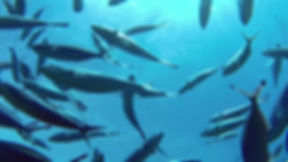Jane Goodall: Protecting our Sacred Water

"Over the past several weeks, the peaceful protest of the Standing Rock Sioux in North Dakota has quietly set the example of effective civic engagement. While their protest was answered with violence, I commend the Sioux for sticking to their peaceful principles.The Standing Rock Sioux are protesting the Dakota Access Pipeline because it crosses their sacred lands and threatens the water supply for their community. I commend them for standing firm. I also commend and congratulate President Obama for halting pipeline construction until these risks can be fully assessed. It is important to remember, however, that this stay is temporary.
We must stand with the Sioux and the many other Native American Nations who came forward to make sure this route is closed to the pipeline for good.It is impossible for me to issue this statement without also commenting on the overarching need to redress the wrongs done to Native American communities throughout the United States.
I was moved to learn of the hospitality the Standing Rock Sioux offered to all who came to support their peaceful demonstration. As I understand it, this was the largest gathering of Native American communities from around the United States that has ever happened. They, and others of every color and creed, were made welcomed by the Sioux who provided food, shelter and community to all who came.
I have found this warm hospitality to be typical of the Native American communities I’ve had the privilege to visit. But one cannot encounter so much generosity – given so freely and from a place of such need – without also remarking on the fundamental injustices that these communities live with every day.It is time for all of us to stand with the Standing Rock Sioux and to stand up for all of those who are oppressed and marginalized by the near-term interests of profit at the long-term expense of the world we all share.– ~Dr.Jane Goodall
“Protecting our Sacred Water” helps educators and youth program facilitators bring education for sustainable development to their students/youth in a transformative way through action projects. The guide provides tools for teachers to help youth choose a project topic and how to carry it out through the integration of FNMI ways of knowing. It is important that Aboriginal youth; Canada’s fastest growing and most marginalized population, see themselves as leaders in creating change. When youth are meaningfully engaged throughout the entire process, they are more likely to make positive changes for themselves and their community.
http://news.janegoodall.org/2016/09/27/jane-speaks-the-dakota-access-pipeline-native-protectors-of-sacred-water-draw-the-line/
http://janegoodall.ca/get-involved/protecting-our-sacred-water






















